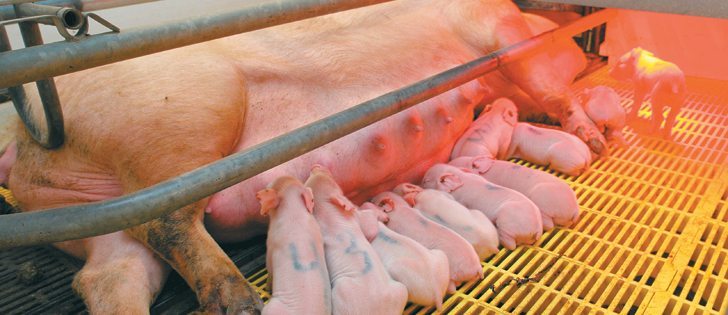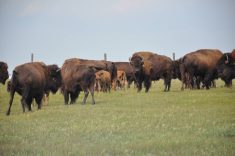It’s dangerous to assume that sows naturally pass on to their piglets all the vital micronutrients they need, says a leading Canadian hog re-searcher.
Jacques Matte of Agriculture Canada said piglets are often dangerously deficient in vitamins D and A and copper during their most vulnerable time of birth to weaning, even when sows have adequate levels of these vital micronutrients.
“(They) seem to be not very well transferred from the mother to the piglet,” he told the Western Nutrition Conference in Winnipeg Sept. 30. “There is a sort of blockage at the placental level for the three micronutrients.”
Read Also

Trump’s tariffs take their toll on U.S. producers
U.S. farmers say Trump’s tariffs have been devastating for growers in that country.
The blockage applies to both the transfer of those micronutrients in utero and after birth through milk.
Matte said supplementation from birth to weaning appears to be a good way to address the problem. Piglets quintuple their weight in those first three weeks of life, and any deficiency can bring on disease, lower growth rates and general problems.
As well, he said the effects of early deficiency can linger, and covering that deficiency may result in stronger long-term growth.
“We think that there might be a sort of imprinting effect of giving these piglets (supplementation) very early in life,” said Matte.
The deficiency problem remains a mystery for researchers. It is possible piglets have not always needed higher levels of those nutrients, either in nature or other production systems. It could also be the result of the way pigs have developed through selective breeding.
















